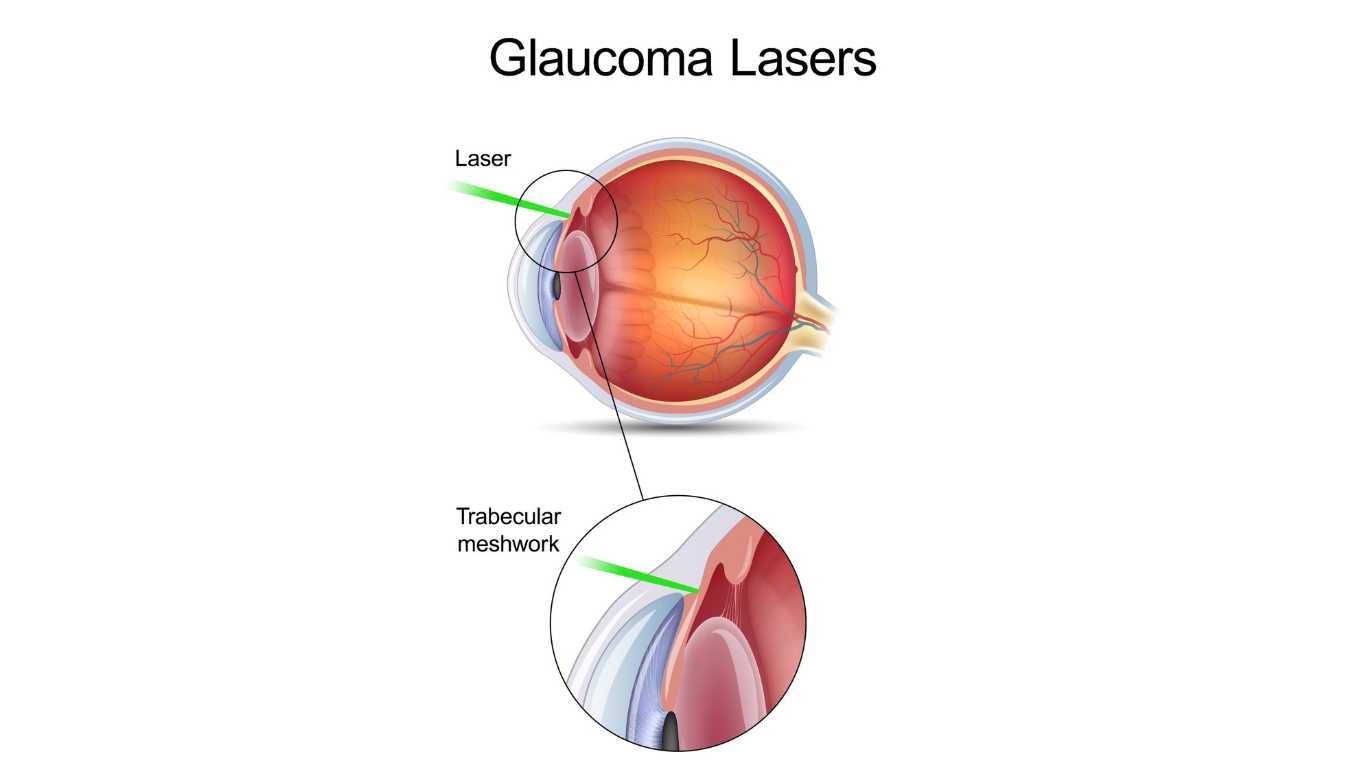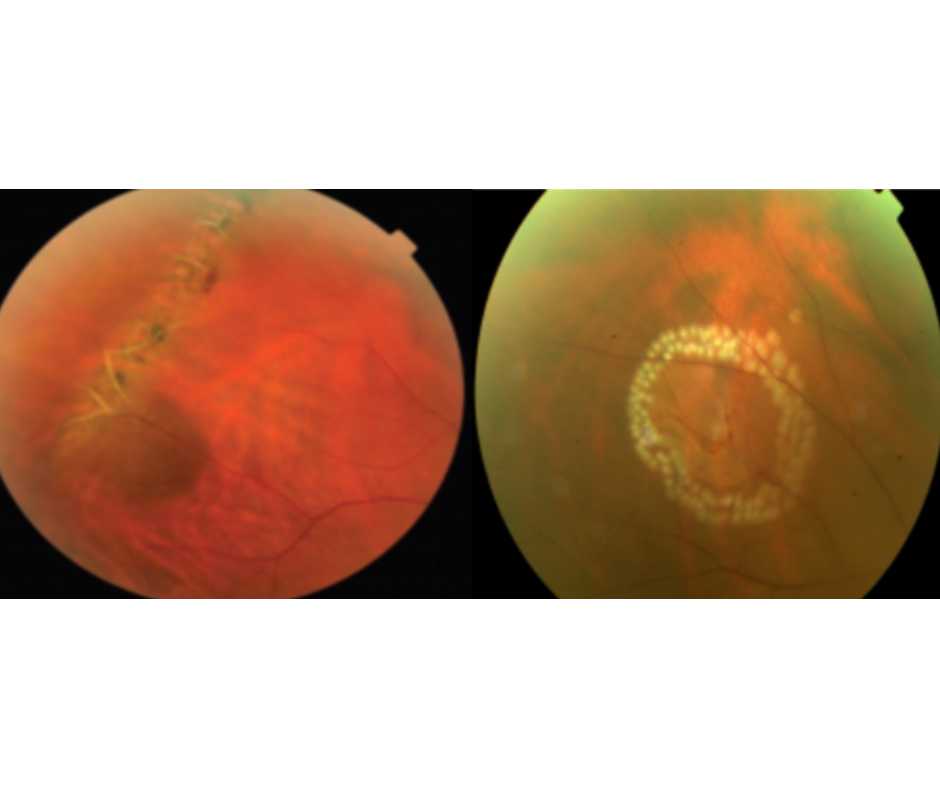Types of Laser Eye Surgery for Glaucoma:
Glaucoma, a group of eye conditions that cause damage to the optic nerve, stands as a leading cause of irreversible blindness globally. However, the realm of medical advancements has ushered in a ray of hope with the introduction of various treatment options aimed at effectively managing glaucoma. In the following article, we will delve into the distinct types of laser eye surgery for glaucoma.
Understanding Glaucoma Treatment & Types of Laser Eye Surgery for Glaucoma:
Glaucoma, a group of eye disorders characterized by increased intraocular pressure that damages the optic nerve, gradually impairs vision, and can lead to blindness if left untreated. However, a new approach that has gained prominence is laser eye surgery, which presents a minimally invasive option for managing glaucoma and reducing the necessity for lifelong medication.
An Overview of Laser Eye Surgery:
Laser eye surgery, focused laser energy to modify eye tissues and enhance drainage, plays a pivotal role in reducing intraocular pressure connected with glaucoma.

Selective Laser Trabeculoplasty (SLT):
SLT, a renowned laser procedure for treating glaucoma, centers on the trabecular meshwork, a vital drainage region within the eye. By using laser energy, this technique stimulates the body’s innate healing response, which subsequently unblocks drainage canals and facilitates enhanced fluid drainage.
Laser Peripheral Iridotomy (LPI):
LPI is used to treat angle-closure glaucoma, where the drainage angle is narrow. The laser creates a small hole in the iris, permitting fluid to flow more freely and reducing intraocular pressure. This procedure can prevent sudden spikes in pressure that can be painful and harmful to the eye.
Endoscopic Cyclophotocoagulation (ECP):
Focusing on a different aspect of glaucoma treatment, ECP targets the ciliary body, which holds the responsibility for producing aqueous humor within the eye. By reducing its capacity to generate fluid, the laser effectively lowers intraocular pressure.
Laser-Assisted Non-Penetrating Deep Sclerectomy (NDS):
NDS, a non-penetrating surgery, ingeniously merges laser technology with conventional surgical techniques. This approach meticulously constructs a controlled channel, facilitating fluid drainage and thereby achieving a reduction in intraocular pressure.
Comparing Traditional Surgery with Laser Surgery:
While traditional glaucoma surgeries typically entail the creation of a novel leakage channel to alleviate pressure, laser surgeries take a divergent approach by enhancing pre-existing drainage pathways.
Factors to Consider Before Undergoing Laser Eye Surgery for Glaucoma:
Prior to considering laser surgery as a viable option, patients must undergo a thorough eye evaluation. Various factors, including the type and severity of glaucoma, overall eye health, and medical history, significantly impact the appropriateness of laser surgery.
Benefits and risks of laser eye surgery:
Engaging in laser surgery presents a range of advantages, such as diminished dependence on medication, swifter recovery periods, and a decreased likelihood of complications. It’s essential to acknowledge, however, that potential risks encompass transient vision alterations, instances of inflammation, and the potential necessity for supplementary treatments.
Preparing for Laser Surgery: What to Expect:
In preparation for the surgery, your ophthalmologist will thoroughly elucidate the procedure, address any queries you may have, and furnish you with pre-operative instructions. It is possible that you will be required to cease specific medications and organize transportation for the day of the surgery.
The Laser Surgery Procedure: Step-by-Step:
During the course of the actual surgery, you can anticipate experiencing minimal discomfort. It’s important to note that the duration of the procedure fluctuates in accordance with the specific type of laser surgery being conducted.
Post-surgery Care and Recovery:
Following the surgery, it’s possible to experience mild discomfort or encounter a certain degree of blurred vision. However, your ophthalmologist will provide you with Exhaustive instructions for proper eye care and prescribe any essential medications.
Success Rates and Long-Term Outcomes:
The efficacy of laser eye surgery (types of laser eye surgery for glaucoma) in treating glaucoma hinges on several factors, including the specific type of glaucoma, the chosen surgical procedure, and the overall health of the patient.
Author Details:
Dr. Sushruth Appajigowda holds a prominent position as a cornea, cataract, glaucoma, and LASIK surgeon in Bangalore. He serves as the chief cataract and refractive surgeon at Vijaya Nethralaya Eye Hospital, Nagarbhavi, Bangalore. Renowned as one of the finest LASIK surgeons nationwide, he brings with him over 12+ years of experience across multiple LASIK platforms, including ZEISS, ALCON, SCHWIND, AMO, and Bausch and Lomb. Having successfully conducted over 5000 LASIK procedures, Dr. Sushruth holds the title of a Certified Refractive Surgeon and a Fellow of the All India Collegium Of Ophthalmology. Furthermore, he stands as a distinguished speaker at various national and international forums, using his expertise to guide you in selecting the most suitable procedure based on your health requirements.

Conclusion: A Clearer Future with Laser Eye Surgery (types of laser eye surgery for glaucoma)
Laser eye surgery (types of laser eye surgery for glaucoma) has revolutionized glaucoma treatment by offering minimally invasive procedures that effectively reduce intraocular pressure. With various options tailored to different glaucoma types, patients can choose treatments that suit their needs while enjoying faster recovery times and improved quality of life.













